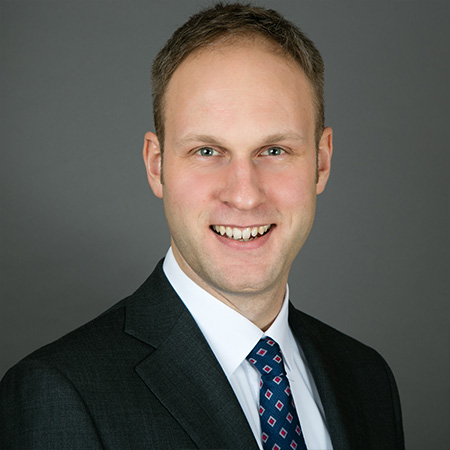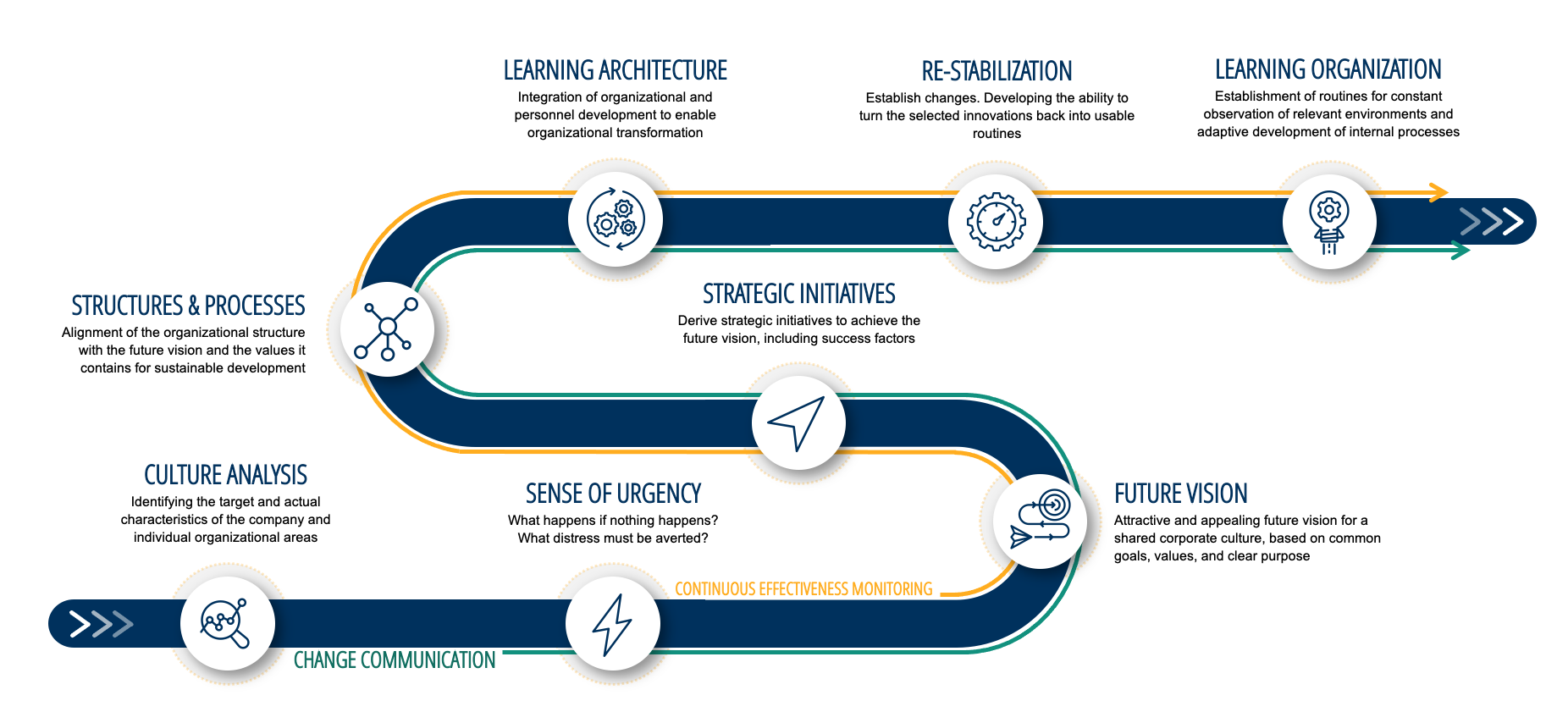
Learning Organization
Whether the term agile organization, learning organization, resilient organization, foresighted organization or innovative organization is used, the organizational ability to react dynamically and adaptively to changes in the target markets and relevant environments is one of the most important prerequisites for the long-term success of companies of our time. In the meantime, however, many companies and their employees have reached the limit of their ability and willingness to change. How can organizations become more resilient and manage continuous change with greater ease?
Integrating organizational and personnel development
In the field of tension between globalization, digitalization, energy transition, demographics, academization, and climate change, companies are looking for solutions to internal and external challenges. These solutions require learning on the part of the stakeholders involved as well as a change in the processes, routines, and structures that exist within the organization.
We speak of learning architectures when organizational and personnel development is dealt with in an integrated process.
Many organizations lack adequate learning architectures, which means that organizational transformation or development processes do not have the desired effect. Agile methods are introduced, but hardly bear fruit because the personnel requirements to anchor them culturally are missing. Furthermore, certain employees are trained as Scrum Masters, but can hardly apply their learned skills in existing structures because the organizational prerequisites are missing.
In a learning organization, organizational and personnel development processes are interlinked and very specifically aligned with strategic goals. This greatly increases the likelihood of the success of organizational transformation and development processes.
Learning Organization
Roadmap for the development of organizational adaptive and innovative capacity
The establishment of effective learning architectures, as well as routines for the constant observation of the relevant environments and structures for the adaptive development of internal processes, goes hand in hand with corporate culture development.
Corporate culture cannot be changed overnight or by decree. However, it is possible to influence it with the help of indirect interventions. The prerequisite for this is that the currently lived corporate culture is known and articulated because this is the only way to work on the target-actual difference and thus change the corporate culture in the long term.
Essential to the development of an agile or learning organizational culture is a paradigm shift with regard to change. It is about recognizing that change and dealing with sudden disruption is no longer an exception. Nothing is as constant as change, and for that reason, change must be incorporated as an integral part of service delivery processes. If this recognition can be anchored organizationally and culturally, organizational resilience will develop.
The following diagram shows the main steps in the development of the learning organization. We implement and adapt these steps on a customer-specific basis, tailored to the concrete needs of our client companies. The diagram illustrates in a slightly simplified way what is important:
Are you interested in developing yourself, your team, your department, or your organization effectively? Arrange a free consultation with us in the online dialog. We will discuss the specific challenges in your organization and you will receive a concrete and free proposal on how to achieve your goals.
Learning organization - background information
The term “learning organization” was coined as early as the early 1990s by Peter M. Senge, director of the Center for Organizational Learning at the MIT Sloan School of Management. A learning organization is an adaptive organization that responds adequately and effectively to external and internal stimuli.
Today, the term agility is more popular in this context – unfortunately, its meaning is also heavily watered down and not uniformly defined. For this reason, we prefer to use the term learning organization, even though the core of both terms describes more or less the same concept.
Ideally, a learning organization is continuously and purposefully in motion. Unforeseen events are perceived as stimuli and used for development processes in order to adapt the knowledge base and scope for action to the new requirements. This is based on an open-minded organization that has established structures and routines to use system intelligence for innovative problem-solving. Learning organizations are accordingly strongly characterized by the following principles:
- Clearly communicated and anchored future vision that, in addition to the economic corporate goals, also includes values shared throughout the company
- Learning architectures for collective development, social learning, and continuous organizational self-renewal
- Mutual trust and a positive culture of error with clearly defined spaces for experimentation with new leadership and working methods, and further development of the performance portfolio
- High degree of ownership, involvement, and self-organization of networked teams
- Meaningful leadership and meaningful operational design that incorporates the personal motives of employees, thus linking professional and personal development
- Ability to (self-)observe, reflect, and forecast through continuous effectiveness monitoring
- High degree of transparency within the organization and vis-à-vis stakeholders – also with regard to social and environmental responsibility
Introduction to systemic organizational development
Development towards a learning organization
As a systemic organizational consulting firm, we view our clients and their consulting needs holistically and coordinate our consulting services at the levels of strategy, organization, and human resources. We live Work 4.0 within the framework of our consulting processes:
Contact Options
If you would like to learn more about us and our consulting approach, we look forward to a personal conversation with you! Simply make an appointment with us.

Online
Submit a non-binding inquiry and share your request with us
 Frédéric SedlákSenior Consultant | HR Management
Frédéric SedlákSenior Consultant | HR ManagementWe are always at your service+49 4102 69 93 22
Ask for free informationf.sedlak@transformis-consulting.de









